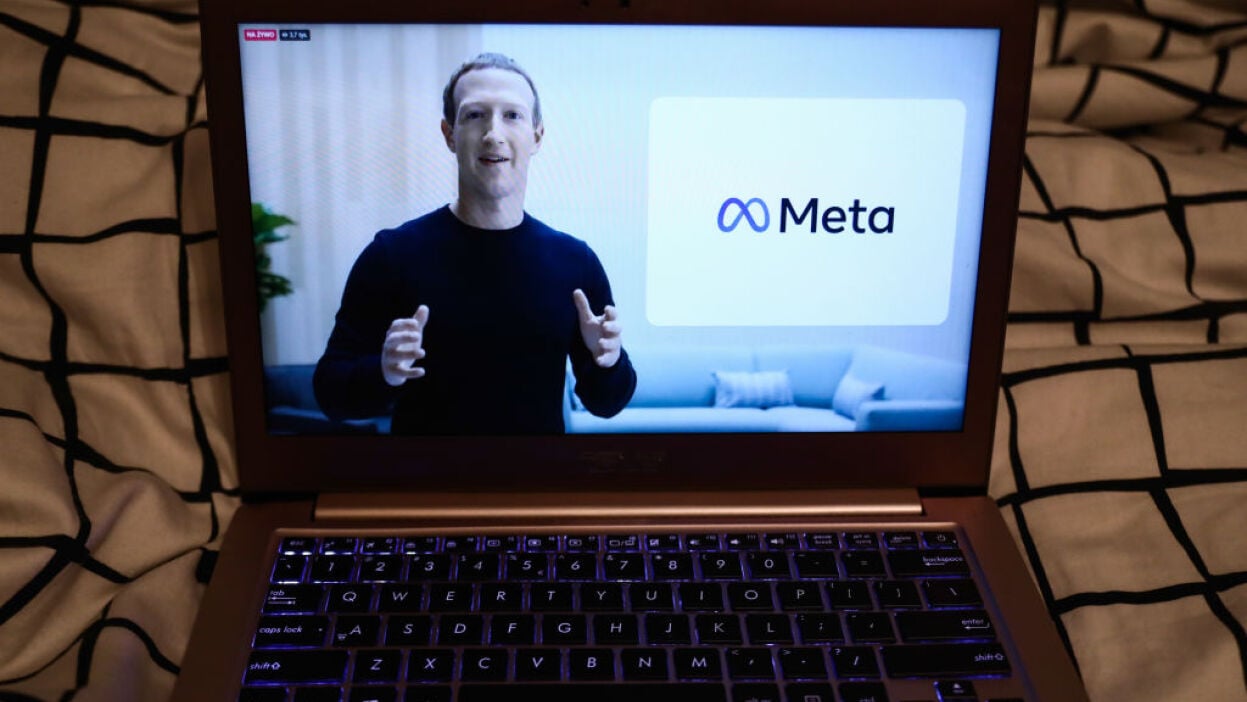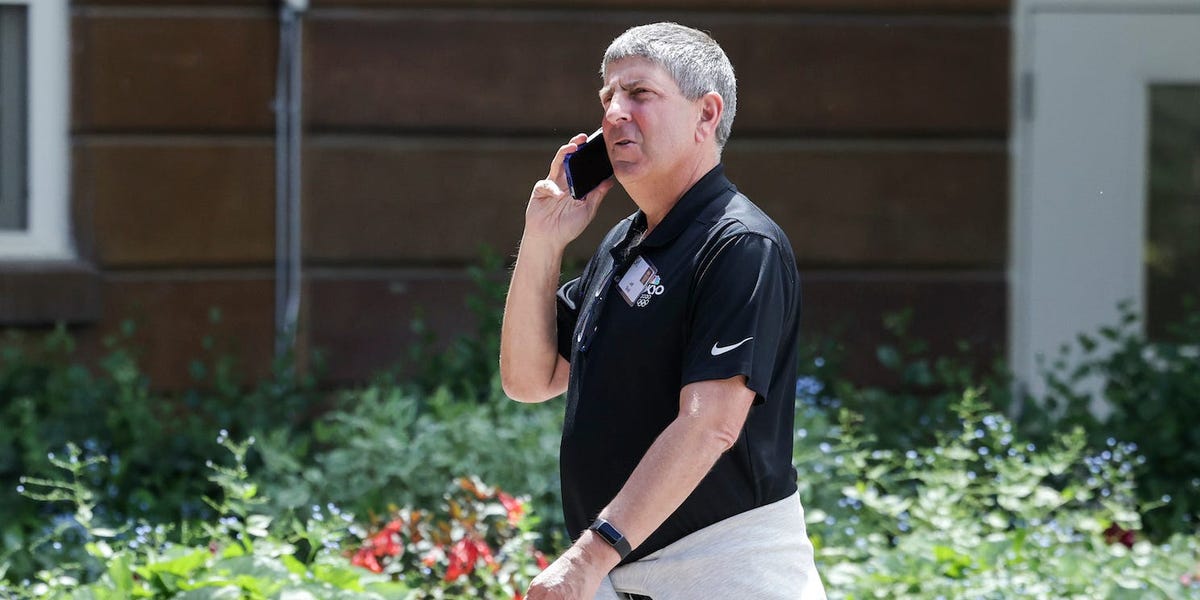Meta's Defense Takes Center Stage In FTC Monopoly Trial

Table of Contents
Meta's Core Argument: Innovation and Consumer Choice
Meta's defense strategy centers on refuting the claim of monopolistic behavior and highlighting the benefits of its acquisitions for both consumers and innovation.
Denial of Monopoly Power
Meta will likely argue that it doesn't hold a monopoly in the social media market, citing several key points:
- Robust Competition: The social media landscape is far from monolithic. Significant competitors like TikTok, Twitter/X, Snapchat, and numerous niche platforms offer diverse user experiences and cater to different demographics. The market is dynamic and fiercely competitive.
- Constant User Migration: User behavior demonstrates a fluid social media ecosystem. Users frequently shift between platforms based on evolving trends, preferences, and feature updates, highlighting a lack of lock-in and market dominance by any single entity.
- Market Share Nuances: Meta's defense will likely present market share data to challenge the FTC's assertions of dominance. They will argue that the FTC's calculation of market share may be flawed, failing to account for the diverse nature of the market and the competition from emerging platforms.
Beneficial Acquisitions
Meta will contend that acquiring Instagram and WhatsApp fostered innovation and expanded consumer choice, rather than stifling competition:
- Independent Success Stories: Before acquisition, both Instagram and WhatsApp demonstrated significant independent growth trajectories, proving their market viability and user appeal even without Meta's involvement.
- Post-Acquisition Enhancements: Meta will likely highlight the significant technological advancements and feature improvements implemented on all three platforms since the acquisitions. These enhancements directly benefit users with improved functionality, user experience, and integration.
- Synergistic Growth: Data on user growth and engagement across Instagram, WhatsApp, and Facebook post-acquisition will be presented to demonstrate that the acquisitions resulted in overall growth and increased user engagement, not market suppression.
Challenging the FTC's Definition of the Relevant Market
A crucial aspect of Meta's defense is to challenge the FTC's definition of the relevant market.
Beyond Social Networking
Meta will likely argue that the FTC's definition of the "social networking market" is overly narrow and doesn't reflect the broader competitive landscape:
- Expanding Communication Landscape: Competition extends beyond traditional social networking. Messaging apps, video platforms, and other communication technologies all compete for users' time and attention, offering alternative ways to connect and share information.
- Dynamic Market Evolution: The digital communications market is constantly evolving, with new platforms and technologies continuously emerging. A rigid definition of the market risks overlooking the fluidity of user preferences and the innovative potential of new entrants.
- Interoperability and Blurred Lines: The lines between different platforms are increasingly blurred. Users often seamlessly transition between various platforms, integrating different services into their communication strategies, thereby undermining the notion of a strictly defined "social networking market."
Network Effects Argument
Meta will address the concept of network effects, acknowledging their presence but arguing they don't automatically translate to anti-competitive behavior:
- User Benefits of Network Effects: Large networks, while offering significant advantages to the platform, also benefit users. Larger networks inherently mean more connections, broader reach, and richer user experiences.
- Countering Barriers to Entry: Meta will counter the FTC's argument that network effects create insurmountable barriers to entry. They will argue that the market's dynamism and ongoing innovation prove the possibility of successful new entrants.
- Successful Network Market Entrants: Case studies of successful entrants in other network-based markets will be presented to demonstrate that network effects, while significant, do not inherently preclude new competition.
The Potential Impact of the Trial Outcome
The Meta FTC Monopoly Trial's outcome carries significant implications for the future of the tech industry and digital market regulation.
Future of Tech Acquisitions
The ruling will profoundly impact future tech mergers and acquisitions:
- Chilling Effect on Innovation: A restrictive ruling could create a chilling effect on innovation, discouraging companies from pursuing acquisitions that might foster growth and technological advancements.
- Impact on Smaller Companies: The trial's outcome will have a particularly strong influence on smaller companies seeking expansion through acquisitions. Heightened scrutiny may limit their ability to compete with larger corporations.
- Global Ramifications: The legal precedent set in this case will have global ramifications for antitrust law and tech regulation, influencing policy decisions in other jurisdictions.
Regulation of Social Media Platforms
The trial's outcome will likely shape future regulations of social media companies:
- Data Privacy and Content Moderation: The trial could lead to significant changes in data privacy rules, content moderation policies, and other regulations impacting social media platforms.
- Freedom of Expression vs. Regulation: The debate surrounding freedom of expression and the spread of misinformation online will be central to the considerations of future regulation. The trial’s outcome will influence the balance struck between these competing interests.
- Broader Societal Implications: Increased regulation of social media carries broad societal implications, potentially impacting the way individuals communicate, access information, and engage in political and social discourse.
Conclusion
Meta's defense in the FTC monopoly trial rests on showcasing the pro-competitive nature of its actions and their benefits to consumers. The outcome will have far-reaching consequences for the future of social media, tech acquisitions, and the broader digital market regulation. This Meta FTC Monopoly Trial serves as a crucial case study for understanding how antitrust laws apply in the rapidly evolving tech landscape, influencing platform development and the overall user experience. Stay informed about the unfolding Meta FTC Monopoly Trial and its impact on the digital world.

Featured Posts
-
 Abc News Shows Fate Tied To Company Wide Layoffs
May 20, 2025
Abc News Shows Fate Tied To Company Wide Layoffs
May 20, 2025 -
 Where Lewis Hamilton Is Losing Out To Charles Leclerc A Detailed Comparison
May 20, 2025
Where Lewis Hamilton Is Losing Out To Charles Leclerc A Detailed Comparison
May 20, 2025 -
 Moodys Downgrade Impact On Dow Futures And Us Dollar
May 20, 2025
Moodys Downgrade Impact On Dow Futures And Us Dollar
May 20, 2025 -
 Vodacom Vod Financial Report Earnings And Payouts Above Forecasts
May 20, 2025
Vodacom Vod Financial Report Earnings And Payouts Above Forecasts
May 20, 2025 -
 Breite Efimereyonta Giatro Stin Patra 12 And 13 Aprilioy
May 20, 2025
Breite Efimereyonta Giatro Stin Patra 12 And 13 Aprilioy
May 20, 2025
